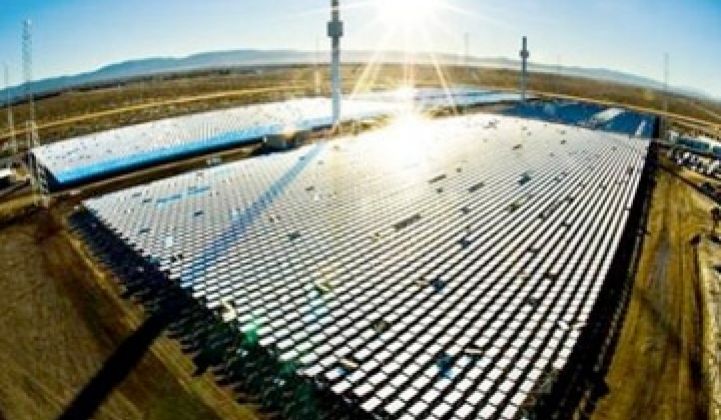Maybe the smart grid isn't as glamorous as it sounds.
Meter maker Itron yesterday reported a decline in revenue and earnings for 2009. Revenue for the past year came to $1.69 billion, dropping from $1.9 billion in 2008. Meanwhile, net income declined to $69 million from $88 million.
The company said the drop was caused by economic uncertainly, uncertainty around the stimulus program, and currency conversion issues. But the turnaround is on the way. The company's backlog of orders increased from $1.5 billion from $1.3 billion. The third quarter of 2009 was likely the low point, according to Itron.
Smart Grid News, meanwhile, says that utilities may begin to reject stimulus funds if the Treasury Department goes through with a plan to tax them. Stimulus funds, after all, must be matched by investments from utilities, says the National Association of Regulatory Utility Commissioners, thereby creating spiraling costs for ratepayers and utilities. If the benefits from smart grid are only incremental, the whole process could be slowed significantly.
Maybe, but most executives would rather pull out their front teeth with a pair of rusty pliers than give back the opportunity to get free money. Ergo, expect grumbling acquiescence.
In solar, eSolar strikes again. The solar thermal equipment company has struck a deal to deploy thermal power plants in Spain, the United Arab Emirates, and Africa with Ferrostaal AG, a large power plant developer. eSolar has similar deals pending in China and India. The start-up earlier tried to build power plants on its own. It was rough sledding and would have required lots of cash. Since switching to a partnership strategy, it has been able to line up a number of deals.
Many of these contracts are for future projects that could always fall through, but they are definitely signs of interesting momentum. The company also plucked John Van Scoter from Texas Instruments to assume the role of CEO.
Days after the Obama Administration issued over $8 billion for loan guarantees for nuclear plants in Georgia, Nuclear Innovation North America said it will assume control over an expansion of the South Texas Project, a nuclear plant, when and if its loan guarantees come through. The idea is to add to turnkey nuclear reactors from Toshiba to the plant.
Nuclear enjoys support from many different constituencies today, but two big questions still loom: will the promised costs match the actual costs, and what do we do about the waste?
And finally, Siemens will expand its rail manufacturing facility in Sacramento to serve the high-speed rail project in California, while rival General Electric signed a deal with NextEra Energy Resources, a wind subsidiary of Florida Power and Light, for its WindBoost technology. WindBoost turns a 1.5 megawatt turbine into a 1.6 megawatt one. Spread across NextEra's 800 turbines, it adds up.



